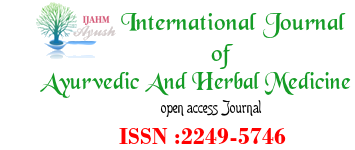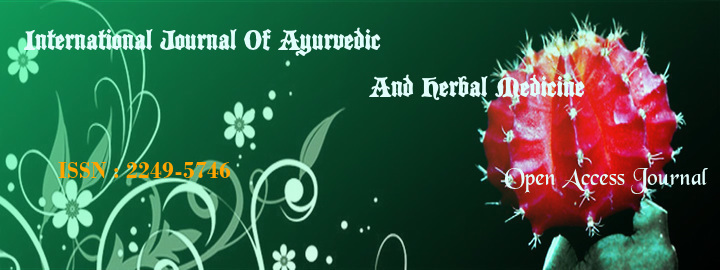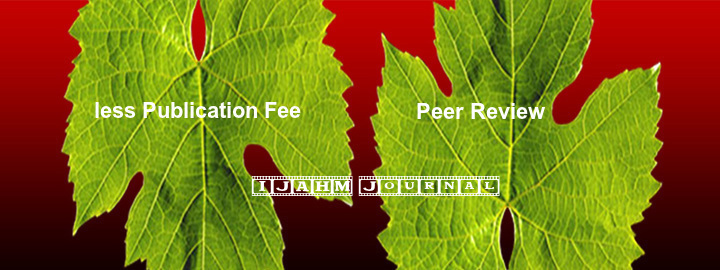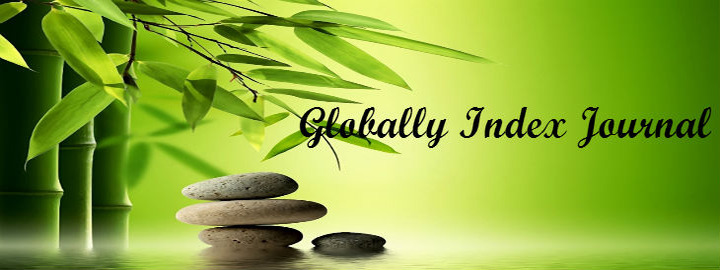


1Anjumol M , 2Jithesh M
DOI : http://dx.doi.org/10.47191/ijahm/v12i5.01
1PG Scholar, Department of Kayachikitsa VPSV Ayurveda College, Kottakkal
2Professor and Head Department of Kayachikitsa, VPSV Ayurveda College, Kottakkal
ABSTRACT:
Personality disorders are a group of mental health conditions that are characterized by inflexible and atypical patterns of thinking, feeling, and behaving. These inner experiences and behaviors often differ from the expectations of the culture in which someone lives. It is common in the society but many are being undiagnosed or even under diagnosed. Personality disorders can lead to distress, social isolation and eventually increases the risk of depression and other mental health issues if left undiagnosed and untreated. There are numerous types of personality disorders which are grouped into three clusters based on similar characteristics and symptoms. A few people may have signs and symptoms of multiple personality disorders. As per DSM 5 each personality disorder has a criteria that must be met for a diagnosis. Management of personality disorder in contemporary medicine is limited and it is symptomatically palliative rather than curative in nature.
In this context, concepts of mental health in Ayurveda becomes relevant and hence the information about personality disorder and its Ayurvedic perspective needs to be explored. With the Ayurvedic treatment modalities, behavioral modifications are possible and thereby improving the quality of life. Just as the ratio of Vata, Pitta, and Kapha in body constitution, there are distinctive proportion of Sattva, Rajas, and Tamas and its combinations in the mind. The concepts of 3 types of mind ie: sudda, rajasa and tamasa and also its combinations can be considered as different types of personalities or personality traits in Ayurveda. Personality disorder is a topic that needs more discussion and understanding for effective management. There are already certain efforts in understanding sattva, Rajas, and Tamas gunas. It can be furthered so that comprehensive personality picture can be generated, which can have implications for health career, education and many other dimensions of life. Personalities resulting from satwa, rajas and tamas are predisposing factors for the development of personality disorder. Any triggering factors may precipitate the changes in personality leading to a disorder. The concept of personalities presented in Ayurvedic literature definitely provides immense scope of exploring it in the light of modern psychology which scientifically analyses human behaviour.
Key Words: Personality, Personality Disorder, Personality trait, Trisatwa DSM5
References:
- R Srikanta Murthy. susruta samhita. 2010th ed. Vol. 1. Sutra sthana.ch.15th. varanasi: chaukhambha orientalia;P110
- Winsper C, Bilgin A, Thompson A, Marwaha S, Chanen AM, Singh SP, et al. The prevalence of personality disorders in the community: a global systematic review and meta-analysis. The British Journal of Psychiatry. Cambridge University Press; 2020;216(2):69–78.
- American Psychiatric Association. Diagnostic and Statistical Manual of Mental Disorders.5th Arlington psychiatric association;2013
- ICD- 10. Classification of mental and behavioural disorders. 10th ed. 2007.
- R Srikanta Murthy. susruta samhita. 2010th ed. Vol.1.Sareera sthana.4thch. varanasi: chaukhambha orientalia;P74-76.
- Ram karan sharma, Vaidya Bhagavan dash. Caraka Samhita. 2007th ed. Vol.2. Sareera sthana.ch 4th. varanasi: Chowkhambha Sanskrit series office;P407-411.
- Ram karan sharma, Vaidya Bhagavan dash. Caraka Samhita. 2007th ed. Vol.2. Sareera sthana. ch.8th. varanasi: Chowkhambha Sanskrit series office;P470.
- Ram karan sharma, Vaidya Bhagavan dash. Caraka Samhita. 2007th ed. Vol.2. Sareera sthana. ch.10th. varanasi: Chowkhambha Sanskrit series office;P153.
- Ram karan sharma, Vaidya Bhagavan dash. Caraka Samhita. 2007th ed. Vol.2. Sareera sthana. ch.8th. varanasi: Chowkhambha Sanskrit series office;P474.
- Kulkarni R, Girish KJ, Kumar A. Nootropic herbs (Medhya Rasayana) in Ayurveda: An update. Pharmacogn Rev. 2012 Jul;6(12):147-53. doi: 10.4103/0973-7847.99949. PMID: 23055641; PMCID: PMC3459457.
- Kumarawat, Shreeram Verma, A, Yadav, S., & Meera, K. (2018). Achara rasayana- a behavioural therapy in Ayurveda to promote health and happiness. International journal of Ayurveda and pharma research.
- V. Tewari. kasyapa samhita. 2008th ed.Sutra sthana.28thch. varanasi: Choukhambha visvabharati; P81-85
- Ram karan sharma, Vaidya Bhagavan dash. Caraka Samhita. 2007th ed. Vol.2. Nidana sthana. ch.10th. varanasi: Chowkhambha Sanskrit series office; P406.
- R Srikanta Murthy. Ashtanga hridayam. 2014th ed. Vol.3. 4thch. varanasi: Choukhamba krishnadas academy; P40-45.
- R Srikanta Murthy. susruta samhita. 2010th ed. Vol.1. Sareera sthana. ch.4th. varanasi: chaukhambha orientalia;P70-72.
- K.R Srikanta Murthy. susruta samhita. 2010th ed. Vol.1. Sareera sthana. ch.1st. varanasi: chaukhambha orientalia;P13.
index






















